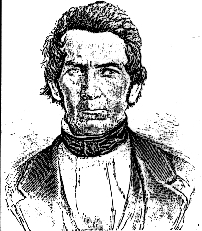Davenport, Thomas (People)
Davenport, Thomas
Thomas Davenport (1802-1851), an American blacksmith who invented the first direct-current (DC) electrical motor in 1834. Davenport's motor design involved mounting one magnet of the motor on a wheel while the other magnet was fixed to a stationary frame. The interaction between the two magnets caused the rotor to turn one-half of a revolution. Davenport learned that by reversing the wires to one of the magnets, he could get the rotor to complete another half-turn. Davenport then devised what we now call a brush and commutator. The electricity source for the magnets was a galvanic battery of the type developed by Volta that used a bucket of a weak acid for an electrolyte. He patented a device for "Improvements in propelling machinery by magnetism and electromagnetism" in 1837, which became the first electric railway. Davenport later started a workshop in New York City and published a journal on electromagnetism, which was printed on a press powered by motors that he devised.
Further Reading
The blacksmith's motor (Mechanical Engineering Magazine Online)
Thomas Davenport - Biography (Hebrew University of Jerusalem, Institute of Chemistry)
Visser, T. D., 1995. History of the Smalley-Davenport Shop: Birthplace of the Electric Motor in 1834. (Historic Preservation Program, University of Vermont)
